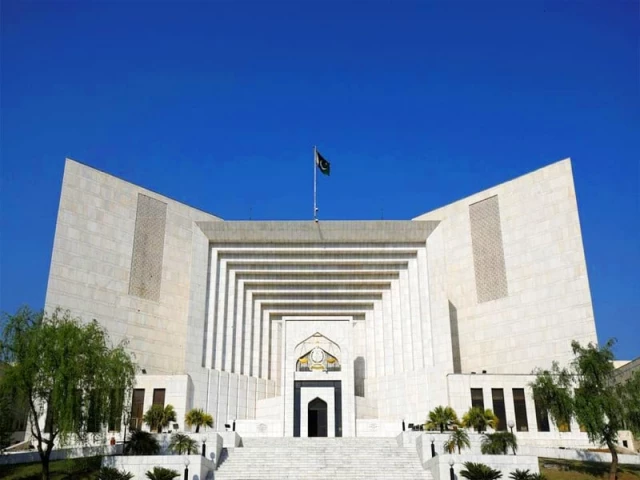Islamabad:
The Supreme Court has acquitted a 74-year-old Christian man in a blasphemy case after 23 years in prison, most of whom spent limited to a death cell because of his mental disorder.
“The appellant is more than seventy -four years old and has spent about twenty -three years in prison, most of whom were in the death cell. The statement from the medical board raises doubts that the appellant’s fault and its advantage cannot be withheld in the facts and circumstances of this case.
The judges from the Supreme Court and the trial dated 30.06.2014 and 18.07.2002 respectively are offset. In the event that the appellant is not required to be imprisoned in any other case, he must be released immediately. We expect the CEO of PIMH to ensure that the medical treatment of the appellant has not been interrupted, “said a nine-page verdict written by Justice ATHER MINALLAH while hearing a blasphemy case pending for the point of point since 2014.
Justice Irfan Sadaat Khan and Justice Malik Shahzad Ahmad Khan were also part of the bench and heard this case.
It is learned that the case was determined before more benches more than a dozen times since 2017, but could not be decided.
Under the facts of the case, according to a complaint filed by Inspector Nasrullah Khan Niazi, the Sho Political Station Gawalmandi, Lahore, the case was registered for commission for the alleged offense in accordance with section 295-C of the Pakistan Penal Code, 1868 on September 28, 2001.
The complaint concerned a letter of August 27, 2001, which had been addressed to Haji Mehmood Zafar. The entire letter was reproduced in the crime report.
The appellant was arrested in September 2001, and after the conclusion of the investigation, a report was submitted to the competent court in accordance with section 173 of the criminal case, 1898. The appellant pleaded guilty to the charge, which was framed against him on June 28, 2002.
In his statement registered in accordance with section 342 of the criminal case code, the appellant, Anwar Kenneth, admitted to having written the letter dated 27 August 2001.
At the end of the trial, the court’s court sentenced the appellant of commission for the alleged offense in accordance with section 295-C of PPC and sentenced him to death. He was also ordered to pay a fine of RS500,000, which in the event of a breach should be recovered as arrears on land revenue.
The Supreme Court answered the reference affirmative; Therefore, the death sentence was confirmed and the appeal was consequently rejected on June 30, 2014. Three years later, the Supreme Court heard his prison assignment and admitted leave on December 15, 2017.
The insulting letter was sent to the Council of Islamic Ideology (CII) last December. CII presented a temporary report on September 13, 2024.
After examining the record, the Punjab Institute of Mental Health (PIMH), Lahore, was instructed to constitute a medical board and submit a report after evaluating the appellant.
The medical officer in the central prison, Lahore, through a letter dated January 1, 2025, addressed to the Inspector of Prisons, Punjab, stated that the appellant had been examined by medical specialists at PIMH and was diagnosed with bipolar affective disorder which was in the hypomanic step.
The medical board had recommended that the appellant be admitted to PIMH for treatment. He was admitted on December 31, 2024.
On February 11, the Court imposed on the CEO of PIMH to constitute a medical board in the light of the principles appointed by the court in the Safia Bano case.
The Board of Directors was duly composed, and after a detailed investigation its conclusions were presented to the Supreme Court on May 30.
The board found that the convicted person suffered from bipolar affective disorder and recommended his admission to the Punjab Institute of Mental Health (PIMH) for treatment
The judgment noted that the opinion of the Medical Board, which consisted of eight medical specialists in psychiatry, has confirmed that the appellant suffered from a serious mental disorder and that it was diagnosed for the first time when he was examined in December 2024.
The court noted that the contents of the letter clearly indicated that its author was suffering from a mental disorder.
“The appellant’s behavior during the investigation and trial was not a normal and sensible person. The contents of the letter reflected signs of greatness, hallucination and delusional flight of ideas. Although abnormality was obvious from the behavior and content of the letter, but neither the prosecution nor the court had the appellant who was investigated by specialists in psychiatrist.”



